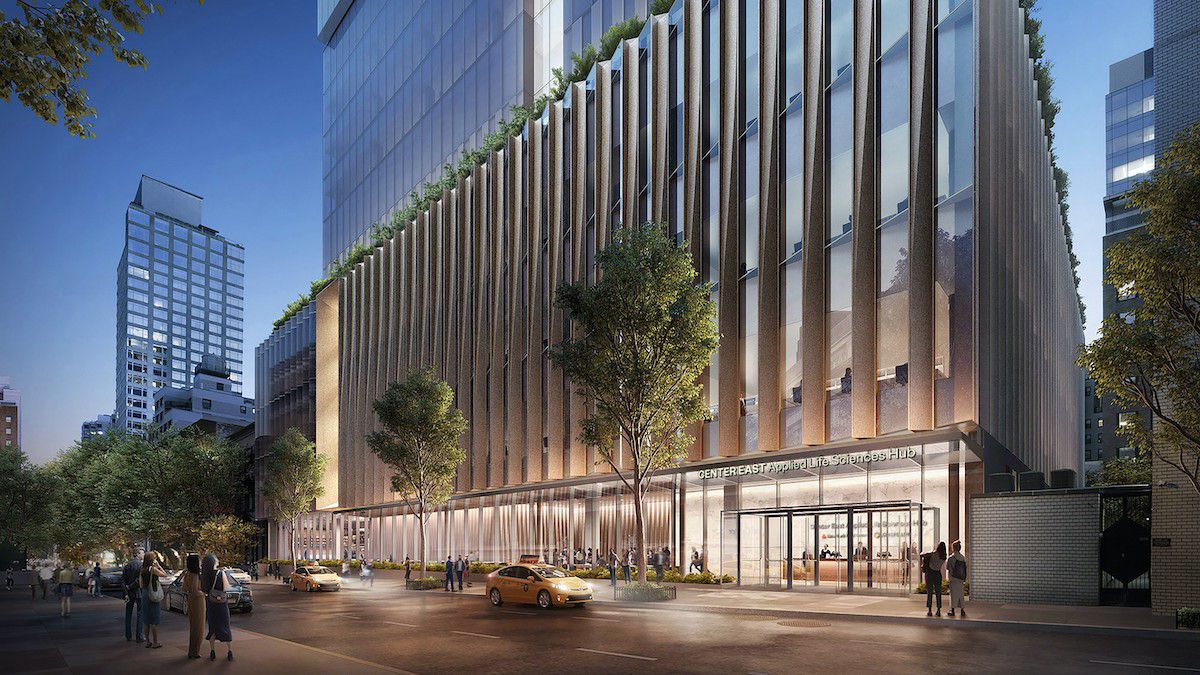The New York Blood Center rezoning plan is heading to a final vote in the City Council after a deal was reached Wednesday with elected leaders to reduce its overall height and grant other concessions to the local community.
The rezoning of the Upper East Side laboratory is proceeding over the objection of the area’s council member, in an unusual rebuke of the council’s deference to members on rezoning efforts in their own districts.
The development would create a large office tower for life sciences research on East 67th Street between First and Second avenues, including expanded laboratory facilities for the blood center.
The negotiations began Tuesday after the council’s zoning subcommittee unexpectedly dropped a planned vote on the blood center. Council member Ben Kallos, who represents the district that includes the center, has opposed it for years, arguing alongside some local residents that it would cast shadows across a local school and park, and bring excessive traffic to an otherwise residential street.
Council Speaker Corey Johnson and Manhattan Borough President Gale Brewer announced the deal Wednesday afternoon after negotiations between Upper East Side politicians and developers that spanned the night, less than half an hour before the scheduled start of a council-wide meeting.
Shortly after, the council’s subcommittee on zoning and franchises, and its committee on land use, voted to approve the deal.
Kallos, a member of the land use committee, voted no on the rezoning, saying the deal set a "troubling precedent" by circumventing member deference.
"The developers made the unprecedented choice to skip working with the local community board and local elected officials, and instead put all their efforts into overturning member deference now and forever," Kallos said.
"We have had more conversations in 36 hours than in the preceding 36 months," Kallos added. "We came close to a win-win for both sides. We haven't gotten there."
The final vote on the rezoning in the full council will not happen until Nov. 23, Kallos said, because of a last-minute legal challenge mounted by some residents that could require a supermajority, or 39 votes, to pass it in the chamber.
The deal would bring the proposed building’s height down by more than 100 feet, according to an email from Johnson’s office, and include provisions that ensure that the only buildings of that size that can be built on the lot will be for life sciences research.
The deal also includes additional funding for the adjacent park and school.
In a statement, Rob Purvis, executive vice president and chief of staff for the New York Blood Center, said the deal will allow the center “to significantly expand its life-saving research on COVID-19 and blood-related diseases in collaboration with institutions and biotechnology partners all under the same roof.”
Kallos had said in an interview Tuesday he would prefer to see any added space at the site used for supportive housing, and suggested that life sciences firms could use vacant office space at a nearby tower.
In an interview Tuesday, Kallos had insisted that the project's developer, Longfellow, a Boston-based firm, and the rezoning's supporters in the council would not be successful.
“They’re trying to make an end-run around the local member and member deference, and they don't have the votes," he said.
During the subcommittee vote Wednesday, several members praised Kallos for negotiating for concessions on the building in face of considerable pressure from city leaders.
“A compromise is never easy, and this project proved the maxim, a good compromise is when everyone is unhappy,” said council member Francisco Moya, who chairs the subcommittee.
“We might not be at a place that is exactly where he was hoping to end up,” said council member Stephen Levin. “But I think his advocacy on behalf of his community and his district is commendable.”
Council members who support the rezoning, including Rafael Salamanca, Jr, who chairs the land use committee, have said the center is necessary to make the city a hub of life sciences research, as well as provide jobs. The council’s Black, Latino and Asian Caucus released a statement Tuesday linking the blood center development, and the added medical research capacity it would bring, to reducing health disparities for underserved communities.
Council member Keith Powers, who represents part of the Upper East Side, was also named in the deal announcement.
Mayor Bill de Blasio, who has committed $1 billion in city investments in medical research, supports the plan, as does Mayor-elect Eric Adams.
Though the final vote on the rezoning has been postponed to the next full council meeting, Kallos said that the negotiations are finalized, even though they are non-binding for the developer.
"As people debate member deference, the question is, is member deference dead, or does this protest work, and is it stronger than ever before?" he said in an interview Wednesday afteroon. "If we pull this off, it may change things, and no one will ever try again."
